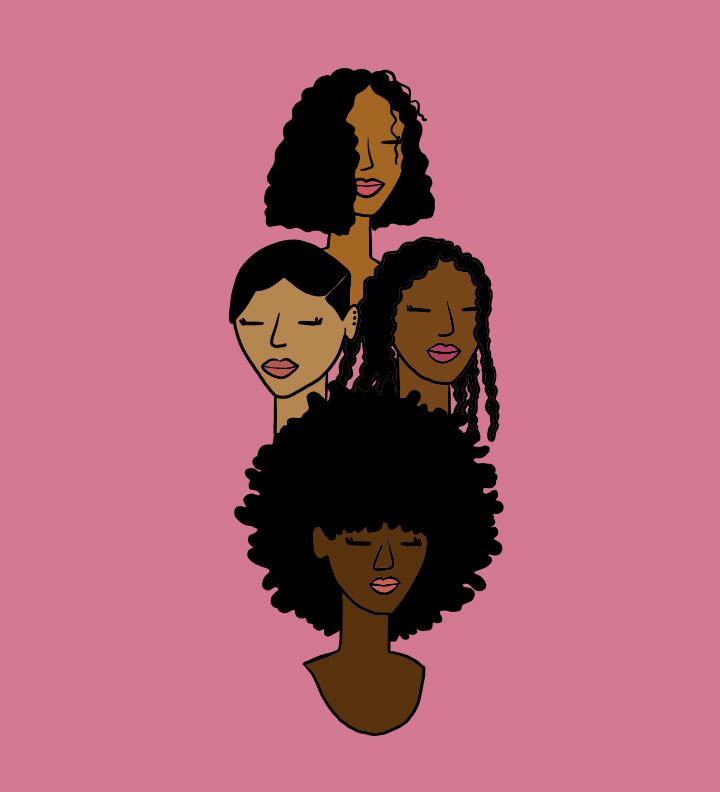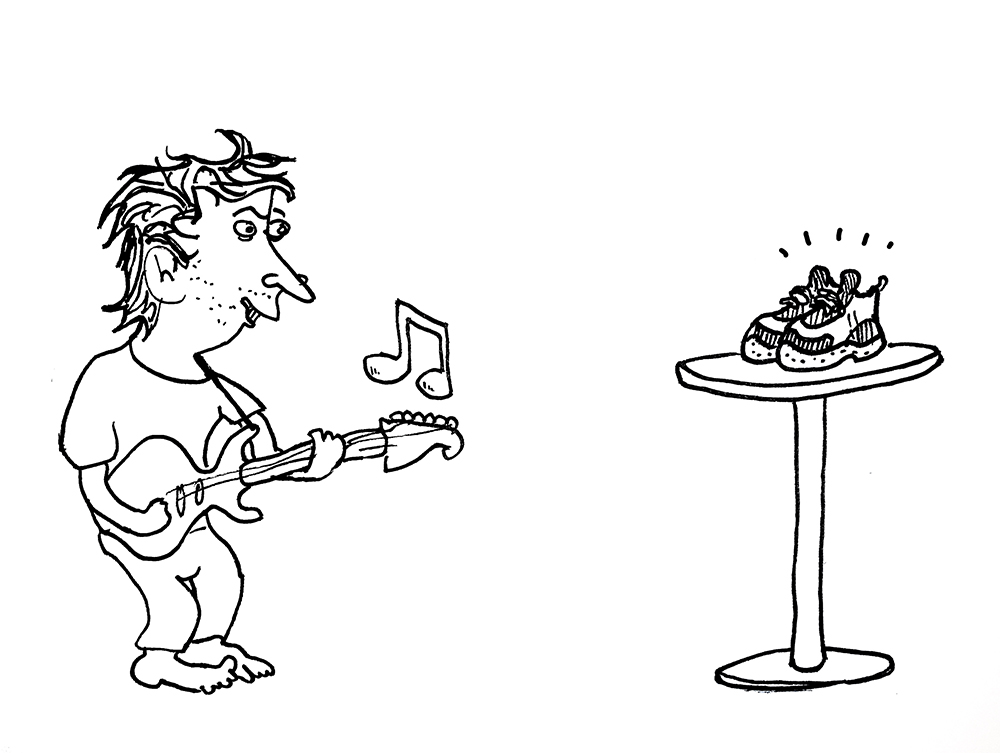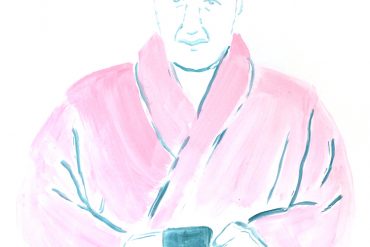This essay is a work of satire, modeled after Bright Alozie’s “How to Write About Nigeria.”
Much like Alozie’s 2021 essay, this post captures an important, historical, truth about how so many journalists, pundits, and even scholars continue to write about African women.
by Jai.Aja Winchester, Hannah Johnson, Ray Barram, Jesse Fontenot, Sarah Saunders, Wren Weddell, Kay Johnson, Alysha Rainder, Delle Stafford, Delana Wilkins, John Equihua, Zack Polizos-White, and Abdulkarim Alfaraj — edited by Dr. Alozie
Start by acknowledging that African women identify as invisible, and their only pronouns are ‘hidden/unseen’ Include the words or phrases ‘oppressed and depressed,’ ‘uncivilized and vain,’ ‘voiceless and defenseless,’ ‘weak and defeated,’ ‘traumatized and tortured,’ or ‘uneducated and unpolished’ in your title. In your subtitle, place her into a convenient category with such appropriate qualifiers as pitiable rural woman, beast of burden, exotic creature, objects of desire, passive human. In your book cover, show a close-up sad-faced picture of the African woman with flabby breasts and surrounded by her obviously malnourished boney children with outstretched beggarly arms. Attribute these features to poverty, hunger, oppression, sexual violence, and suffering which have only defined African women’s everyday experiences. Afterall, the ‘dark continent’ of Africa is the only continent with a monopoly of these problems.
In your preface, include that the African woman is best written and spoken for; she is simply an object of another’s story. She must not be acknowledged unless she is shown to be desperately poor and helpless. To write about African women is to not write about them or to write about civilizing them. There is no need to include them because what importance do they have? Besides, how else would you sell the narrative that you are, in fact, her savior writing to lift her from the dredges of poverty or that Africa needs help from the gracious West? Herstory (her story) does not matter, emphasize history only (his story) because men are truly who matter!
In your main story, make African women visibly invisible and do not include their voices. They hold no say regarding their body or name; keep them in the shadows. Downplay their immense contributions to humanity and civilizations since ancient times. Although within African women’s fabric has been the profound ability to be seeds of nations balanced with reinventing cultures, one generation at a time, never speak about this. Their role in society should only be stereotypically simple and quaint—obedient servant, enslaved woman, demure housewife, good mother—just to keep the peace. The African woman is a baby making machine. She has many children and cannot feed them all, rendering her a perfect victim. Although you should malign her for not being able to care for them all, of course. Call her helpless and naïve and speak of her subservience for what is women is meek and cowardly. How else would the ‘almighty West’ empathize and offer their most generous donations?
African women are ping pongs meant to be played around here and there. They must be viewed through imperial eyes: ‘black bodies, buttocks, and breasts.’ Their history should focus on slave breeding farms; that way, they can be viewed solely as reproductive objects. Feel free to sexualize African women in your description because they are only portrayed as sensual and lascivious by nature; first and foremost, only ever best understood as a lewd, innately promiscuous, predatory things. Seldom acquainted with the self-respect and modesty of modern women, African women are more precocious and objects for sex and the male gaze. Keep a narrative that upholds the legacy of patriarchy and while at it, erase the numerous incidences and enduring impact of colonial sexual abuses, fifty shades of rape, violence, and other unspeakable atrocities perpetrated by the colonizers against African women. Do not even mention that this is an ongoing habit or that in the Central African Republic in 2015, fourteen French soldiers were indicted of sexually abusing children, as young as nine years old, whom they were supposed to protect and that the United Nations failed to stop the abuse.
Dare you speak of her beyond the fetish of her flesh; the colonial playbook is your guide. Like the English colonizers, do not acknowledge African women’s substantial role in the precolonial societies or that African women were more active in public life than their European counterparts. Never speak of the fluidity of gender in Africa and how African women could perform traditional male roles or that they had a far greater public presence compared to European women. Avoid concepts such as female husbands or female pharaohs. Remember, African women should never be protagonists or antagonists in your story. Like Africa, they are a blank slate, for you to express yourself on. Allow them to be a metaphor for your own critical self-analysis, never allow them to reveal their complexity. It is pointless to describe the African woman as a complex, multifaceted being; complexity does not sell, complexity is history and Africa has no history.
African women are not clever and have no power or affluence. It would be misleading to write that African women were economic and financial backbones of their societies or that they were the chief source of their societies’ pride. Never write of African women succeeding in achieving financial power and autonomy. It is only through colonization that African women began to engage in socioeconomic networks. Merchant queens do not and have never existed; it would be foolish to write otherwise. Do not mention that the Akwete weaving community has been run by an all-women-led cooperative for many centuries. Write that Akwete women weavers have no relevance but exclude the fact that Europeans have been fascinated by Akwete fabric weaving technology that the Akwete fabric is still on display in many museums in Europe today.
The African woman cannot assert herself in society in any way: not as a warrior, not as a spirit medium, and definitely not as a queen. Her bones do not rattle with truth in her vengeance as matriarch of her home and nation, her heart does not beat steady with the love and might of a queen mother no less. When writing about political leadership, wars and revolutions, make sure to diminish African women’s worth and achievements; that accolade belongs to men. Do not talk about the ‘dual-sex’ systems of political leadership in Africa. An African woman cannot possibly be responsible for running a nation, that’s not her place. Make sure your readers know that African women have not led kingdoms, empires, and wars in the past. They must never be written as queen mothers with their own councils, aiding and consulting the king with their wisdom. Do not mention the powerful traditional militaries in Africa led by women. Of course, ‘sitting on a man’ or ‘making war on a man’ was a long-held tradition of public shaming and protest employed by African women against men when faced with injustices in their society but this fact must be silenced because it recognizes the power of these women.
Do not include the elite and non-elite African women who led resistance against European colonialism. Talk about how Ethiopia was the one of the two African nations that were never officially colonized but refrain from talking about how Empress Taytu Betul defeated European imperialism. Never mention that the 1929 Aba Women’s War was the first successful women-led colonial revolt in West Africa. It is irrelevant to let your readers know of the several petitions written by Igbo, Yoruba, and Cameroonian women in resistance to colonial rule or the 1949 Grand Bassam women’s march where five hundred Ivorian women protested the incarceration of their husbands and brothers. Forget names of powerful queens and queen mothers like Hatshepsut, Nefertari, Nefertiti, Amina, Makeda, Kandake, Yaa Asantewa, Sarraounia Mangou, Nandi, and Labotsibeni Mdluli among many others.
The history of Africa’s independence should be written devoid of the bravery of heroines who led revolutions, stood up for their communities, or supported their men to fight the colonialists. Never mention that “Queen Njinga Mbanda, ruler of the Mbundu people in present-day Angola . . . strongly resisted Portuguese dominion, assumed multiple sexual and gender roles and/or identities . . . [and] answered to the title of ‘king’ during battles.” Or Kimpa Vita of the Kongo Kingdom who rebelled and conducted a spiritual-liberation struggle against the Portuguese. Erase the fact that she was burned alive by Catholic missionaries for defending her tradition and indigenous religious practices. Never mention the well-organized, powerful, and elite all-female Agojie warriors of Dahomey Kingdom whose fearsome battles and lethal combats are well-known or the historic protests led by Nigerian and other African women who literally ‘undress for redress.’ Sure, Algerian women like Zohra Drif did not endanger their lives during the Algerian fight for independence. And Zimbabwean guerilla women did lead the fight for Zimbabwe to win independence. Dispel any notion that an African woman’s silence can be powerful, like Danièle Djamila Amrane-Minne, an Algerian, who endured seventeen days of torture without cracking under severe punitive actions of her colonizer-enemy.
There will be no female spirit mediums, those who spoke directly to the spirit realm and had great influence in their societies. Magically powerful and highly revered modjadii (rain queens) in southern Africa are fictitious. You can save a traditional female priestess, or prophetess because their powers are ‘unchristian and fetish.’ You can save a veiled Muslim woman, telling your audience she is forced to believe in Islam and cannot make her own decisions about her faith. Surely avoid talking about the role of Muslim women in the spread of educational institutions or well-educated and powerful Muslim African women in ancient and modern times like Fatima Al-Fihri, the founder of the world’s oldest university, the University of Al-Qarawiyyin (in present-day Morocco). Instead, you will bring them the true Christian faith and save them from their dark ways. Or perhaps you will enlighten them with secular, liberal values. It doesn’t matter as long as they are wrong, and you are right!
Like your predecessors, continue to erase the intellectual and political activism of African women like Regina Twala. In order to keep the African woman subdued, do not write about what she could accomplish, but rather write about she should accomplish. Admonish her for raising her voice to demand a change. And be careful to not instill a lick of African feminism in the African woman’s character; do not mention notable feminists and activists like Margaret Ekpo, Funmilayo Anikulapo-Kuti, Gisèle Rabesahala, Zenzi Miriam Makeba, and Mariama Ba.
Never acknowledge any modern-day achievement of the African woman. It is illegal to portray her as successful and even if she becomes successful, always make your readers aware that harsh conditions still affect her life. In her success story, erase her femaleness and attribute her talents and abilities to a male influence—be it her husband, lover, father, brother, patriarchal colonial ruler, or any other male figure. If you must talk about powerful African women, borrow a leaf from the media and write about them in powerless language. Or follow the steps of Cherie Blair by letting your audience know that ‘most African ladies’ first sexual experience is rape’ since African women are only weak and unable to give consent. Erase any evidence that Africa can prosper, be peaceful, and integrated if it leverages on the potential of its women and girls.
Far be it from you to depict African women and girls as problem solvers in the continent. Of course, their contributions to shaping their societies, at home nor in the diaspora, are too numerous to mention but never mention them. There are no successful female African entrepreneurs, millionaires, tech-gurus, scientists, scholars, entertainers, sports persons, etc because African women are inherently lazy. Do not mention Nobel Peace Prize winner and Africa’s first woman president, Ellen Johnson Sirleaf or Joyce Banda, a human rights activist and Malawi’s first female elected president. Never write that Dr. Ngozi Okonjo Iweala is the first woman and first African to lead the World Trade Organization as Director-General or that Wangari Maathai is renowned as a global environmental and political activist. Skip the works of women like Adelaide Casely Hayford and Albertina Sisulu who shaped Pan-Africanism far more than our history books record. Prominently outspoken and visible opponents of South Africa’s apartheid regime, Winnie Mandela and Miriam Makeba, should never be spoken about lest you anger your western audience. And do not let your readers know that has Africa taken a historic lead in female parliamentary speakers representation or that Rwanda, with 63.8 percent female representation in the legislature, is the world frontrunner in gender equality in politics.
African women have not led social movements neither are they leading the fight for gender equality and women inclusion. Forget all the young female activist in Africa like Gogontlejang Phaladi, Irene Zalira, Angeline Makore, Emtithal Mahmoud, and Glanis Changachirere who are fighting on social media and on the streets for peace, equality, social justice, reproductive rights, and climate change. Yes, ignore African women’s key interventions in health crises like Ebola. Write about the western media’s obsession with trying to solve Africa’s COVID-19 mystery of record-lowest death rates but ignore African women who relentlessly led the fight against COVID-19. Although these women are changing Africa’s future, their presence does not matter.
End by reiterating that African women are always and only ever to be invisible—in voice and ink, mind and soul. Remember, your story is only ever a harmless single story, only ever hearsay about African women. Thoroughly proofread your work by editing out any sign of power in African women; ruin the white prism. Emphasize your belief that one African woman’s reality is the reality of all African women. Always end by convincing your readers that for only $19 a month, 63 cents a day, they can help the African woman because you truly care and only, they can save her from her circumstances.





